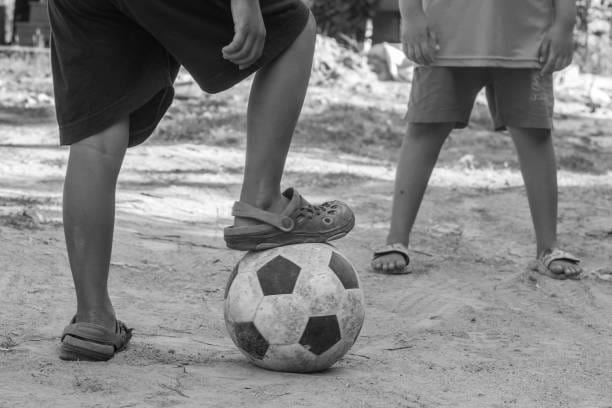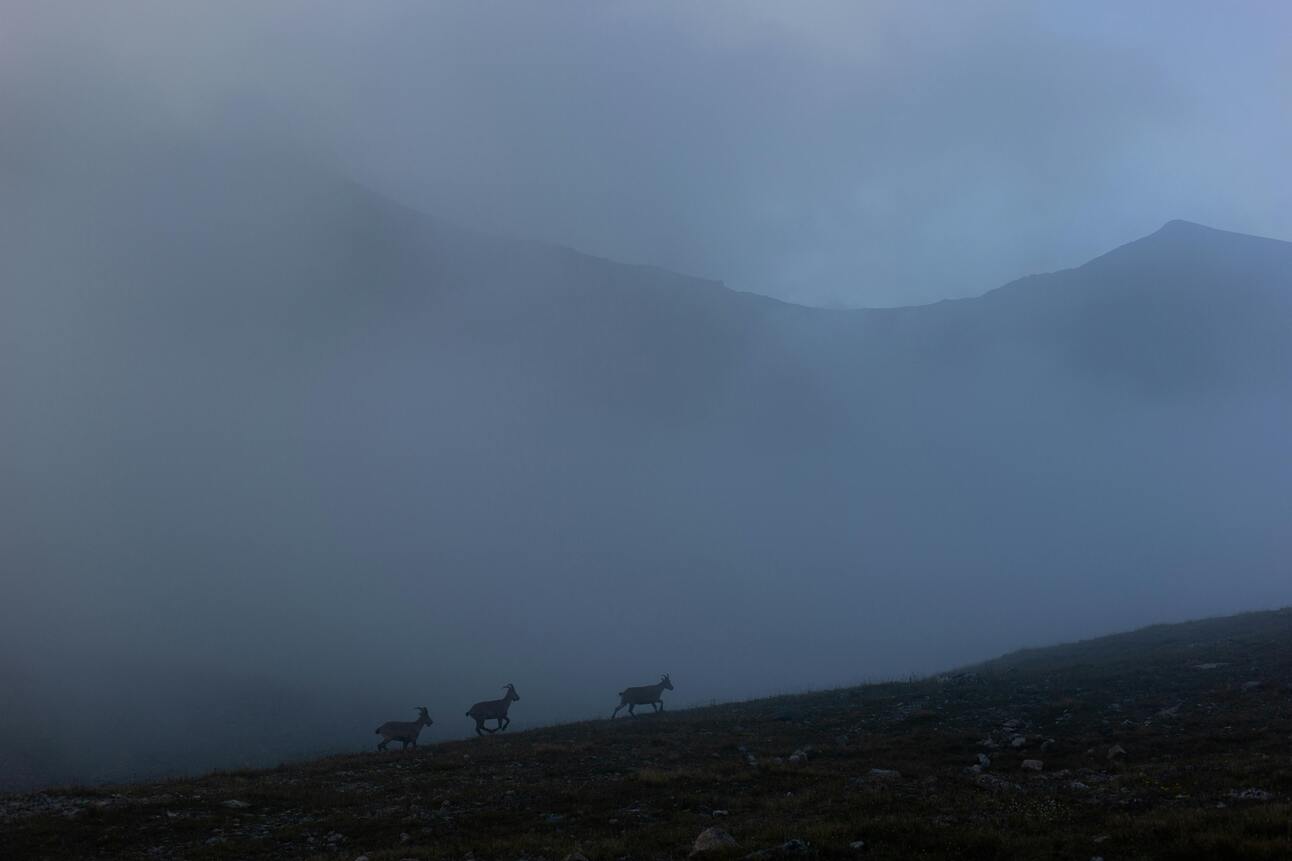The excavators and motor graders came on one dry morning, probably the last dry morning of the month, greeted by cheering children too scared by the motor roar. Children wary of the enormous machines that were reshaping the familiar landscape around them. They came loud and mighty, roaring like kings of progress, kicking up dust and hope. It’s been raining everyday ever since the day they came, as if the sky itself regrets what man has begun. The graders moved earth from east to west. Another route was carved connecting the western stretch to the north, linking it to the main road.
But what a lie the dust told—what betrayal lay under that hopeful, dry morning. By now, these so-called ‘pathways’ were supposed to be actual roads: dreams of asphalt and streetlights. But at the moment, they are just deep canyons cutting through homes and schools. Murky trenches lined with slipperiness and protruding rocks. We jump from stone to stone like frogs evading fate, praying our shoes survive the mud. In that mud and scattered mess, it’s written clearly, almost poetically: “This is the Government of Kenya: we abandon projects because we can.” And we read it every day and don’t even flinch—because that’s what we’re used to. That’s just how things are now.

It’s been months now. The motor graders haven't returned, and neither have the cheering children. The romance of the roaring engines has faded, leaving only the growl of thunder. The road is quiet now, except for the muttered curses of those slipping in mud. The contractors haven’t returned. The bulldozers, engineers, and earth-moving machines have not come back. The only return we get is rainwater settling in puddles. A swampy metaphor for how plans are made, announced, and left to rot. We’re left surrounded by a muddy disaster—a chaotic, physical reflection of my mental state.
Those motor graders were the loudest reminder that change was happening. The world around us is shifting. Whether the people want the excavators to build roads or not, whether we like it or not, the world keeps moving. It is as inevitable as Thanos. The sugarcane and maize plantations that once embraced our homes in quiet community have now been reduced to a swamp of mud, labeled as progress and ‘development’. Even the trees, once proudly shading our homesteads, now droop like they’ve given up. The sugarcane fields we played hide and seek in are now ghost towns for mosquitoes.
But change didn’t ask for our opinion, did it? It rolled in with boots and blades. It did not pause to inquire whether our dreams aligned with the blueprint. It simply tore through the sugarcane and the peace, replacing our laughter with brown sludge. Once our fields smelled of maize and memory. Now they smell like wet despair. Whether we choose to like it or not, the world is spinning faster than our little community.

The boys we used to play football with are now grown and asunder. They got taller, busier, quieter. They’ve forgotten the narrow footpaths we used to trudge through coming and going from school. Some are married now, growing beards and bills, raising babies with tired eyes. Some are on their second or third jobs. Some, like me, are still trying to figure this sh*t out—inside bars, police cells, and under shade trees.
Sometimes I sit and stare at the hills like a drunk prophet. Waiting for signs. But no one says anything, because they too are figuring it out—one beer at a time. The bodaboda riders who once ferried us boys to school now watch us walking around in suits and ties, reminiscing about the days we wet our pants in class.
What do you do when everything and everyone around you is changing?
Change means people your age are now having children and getting married. Suddenly your house is full of tiny humans running up and down, messing everything up, interfering with your OCD. The rooms feel smaller—not because you’ve grown, but because new bodies now occupy them. Children. Tiny people born in your lifetime, now filling every inch of your physical and mental space. They call you “uncle” but don’t care about your existential crisis or laundry pile. Change comes with kids. And kids come bearing change. They alter your body, your routine, your priorities, your peace.
What do you do when you've never liked kids? Heck, you didn’t even like yourself as a kid! That’s why you kept to yourself. But now you can’t, because these kids won’t let you.
They want to know why the motor graders are parked around the neighborhood. They want to know why you started wearing deodorant. Why your phone doesn’t have games or Cocomelon. Why you disappear for months and come back out of the blue. Why you're changing. They follow you around, inspecting your face like archaeologists discovering sadness. Why hair is now sprouting from your chin. Why your armpits and chest have fur, and theirs don’t. You smile awkwardly, say “it’s puberty,” even though that ship has long sailed. You can’t tell them the truth, because what is the truth anyway? That we’re all just improvising? That change is an unpaid intern with dirty shoes? They ask why your jeans are tighter, and if the freckles on your cheeks are contagious or edible. They want to poke them. They want to play with them. These kids are curious detectives and therapy sessions wrapped in small feet. They’ve taken over the house like vines—loud, alive, and impossible to trim.
What do you do when the spaces you once loved are now creaky, dusty, and haunted by silence? When rooms you ran to are now filled with whispers and cobwebs that you won’t touch. Years of neglect evident in every crack. Even the chairs are older, like they’ve been keeping secrets they won’t tell. You used to feel safe here, now you just feel… itchy, and slightly judged. Walls that echoed with laughter now sound like abandoned voicemail boxes. The place hasn’t changed much, but you have, and that’s the weirdest part.
What do you do when these spaces where you once played pranks with your brother are now too cramped for you to even stand up straight in? Are you just growing tall, or is the space shrinking with time? The confinement makes you resent the place. But maybe, deep down, you’re starting to hate it because you’re changing and it’s not. You sit on the floor and whisper to the cracks, hoping to hear something familiar. But even the echoes don’t remember you. They’ve moved on, like your friends have. You wonder if maybe home is not a place but a time, long gone, long closed. So you sweep the dust, curse the spiders, and try to make room for yourself again. Even if that room barely fits who you are now.
You walk through those rooms where laughter and puns once echoed, but they don’t hit the same anymore. Nostalgia leans more toward sadness than joy. It weighs heavily on your chest—feelings of despair and loss, emotions you never used to feel in childhood. You linger in those familiar places, trying to rekindle the joy that once made you who you are. But the mind whispers doubts: Is this really the place I used to love? This place of rubble, dust, and cat fur? This is where I once hid as a child from those I had wronged. Times have changed, but have I changed with them?

What do you do when your own heart no longer recognizes you in the mirror? When it used to be your best ally but now it treats you like an unreliable tenant. You ask it for hope and it hands you anxiety wrapped in self-doubt. This is the same heart that got you through math class and breakups. The same heart that beat proudly when you topped the class and aced exams. But now it beats faster only when bills are due or emails pile up. Did the teachers change, or did your memory just blur their warmth into fog? Once, your heart had answers. Now it only has counter-questions and sarcasm. It made you believe in good outcomes. Now you just hope for fewer bad ones. And still, you pretend to be fine—nod, laugh, say, We move, then sulk in private. Even when no one is looking you smile, because frowning feels too vulnerable. Like letting your guard down.
You try to pray but find yourself bargaining instead of believing. You used to sing loudly. Now your voice is barely a whisper under your breath. Maybe you’re changing. Maybe you’re not. But the weight keeps shifting regardless. You carry it and hide it. You keep walking cause that’s how you were told to survive, isn't it?
Now that change has arrived, your responsibilities have changed too. You’re no longer allowed to sit back and let decisions be made for you. You are now legally, socially, and existentially considered an adult. You must make choices—big ones, adult ones, scary ones—for yourself and for others. You’re now the ‘uncle’ who knows things. People ask for your opinion, expecting wisdom, but all you have is memes and sitcom jokes. You’re too young to be wise and too old to be excused for your foolishness.
And what do you do when you want to help but can’t? What do you do when your efforts to help were previously labeled ‘controlling’, ‘overbearing’, or some other complicated term that gnawed away at your self-esteem year after year? You want to lead, but your past has been weaponized against your intentions. When you try to bring people into modern ways, but the past feels safer and more entertaining to them than the future ever will? They still like their old ways —simple, dusty, full of goats and slow Sundays.

Despite the changes, you still like SpongeBob and steak, but no one asked you. The change is not just painful—it is personal, political, and unwelcome. You were told to dream big, but dreams here need clearance letters and greasing palms. You were told to speak out, but out here silence is a safer currency. You still try, though—only God knows you try—to make something new out of old tools. Even if all you build is a shaky bridge between generations and broken promises. And even if that bridge floods every rainy season.
You were raised believing this simple equation: work hard + be kind = life will reward you. But now, it’s about connections, power games, and how much you own. You’re not adapting to the new game. What do you do? Now you know that networking beats talent, and flattery pays more than honesty. You miss when everything was fair, or at least seemed like it could be. You want to resist this change, but even your own ambition is adjusting to it. You try to unlearn purity, relearn strategy, and still remain kind—another joke!
Turns out, you don’t hate change. You just hate that it came without consulting you. Now even your molars are coming out, and the very act of eating is painful.
Anyway, I’m off to a wedding—because life, like roads, must move on.
✍🏽Reagan.
